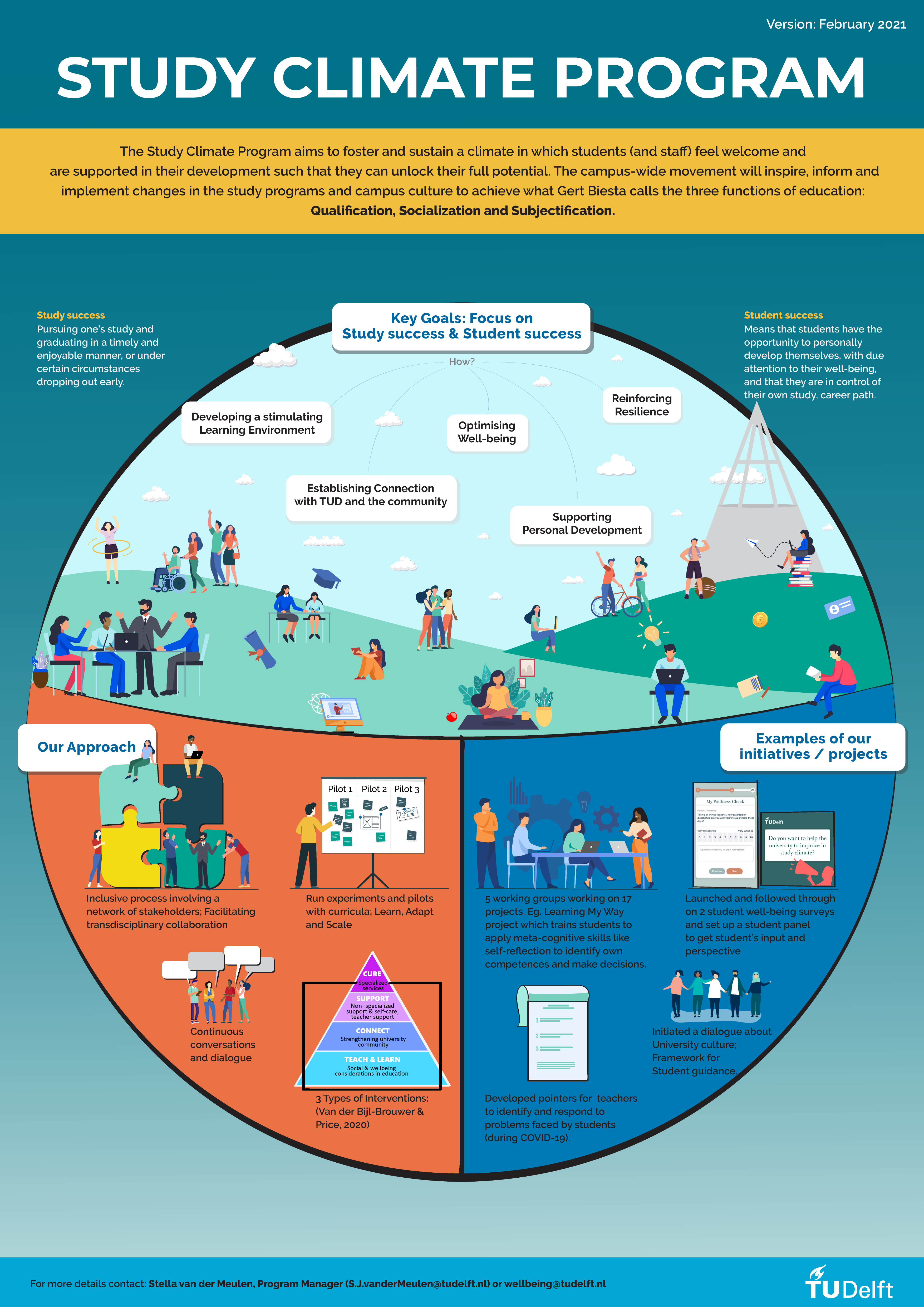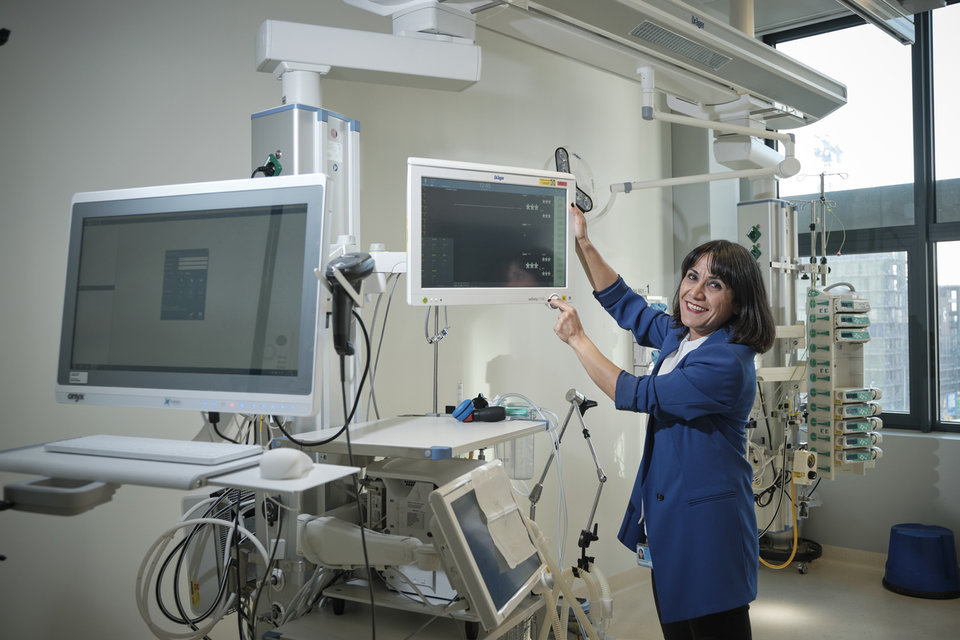Moving towards even more study and student success at TU Delft
How can we ensure student wellbeing and success in a time in which students feel a strong pressure to perform? How do we bring about a generation of both reflective and ‘can do’ engineers that possess the personal skills needed to succeed responsibly?
How can we ensure student wellbeing and success in a time in which students feel a strong pressure to perform? How do we bring about a generation of both reflective and ‘can do’ engineers that possess the personal skills needed to succeed responsibly?
Students enter a new phase of their lives when they start studying at TU Delft. It can be challenging to establish a healthy and happy lifestyle in this new role. This is even more difficult during the current COVID pandemic:
It is important to remember my goals for the future and to realize this is just another
hurdle that has to be overcome to get where I want be in life. – Student
On the one hand, we expect students to obtain all the knowledge necessary to become top-tier engineers. On the other hand, studying reaches further than technical knowledge alone. Students must also develop personal skills such as awareness, resilience and adaptability – critical abilities that power any successful human endeavour. These skills help students to handle the stress of their new student lives and allow them to grow into capable young professionals able to reflect on their own role and on society’s demands. The university wants to support students with this challenge. In order to do this, in September 2019 the Study Climate Program was commissioned by the Vice President of Education, Rob Mudde:
Studying is like navigating a maze. You need to learn to see the patterns and to create a
map. The university wants to ensure a positive learning environment, provide the
opportunities to learn and ask for advice and provide “first aid” resources in case of
setbacks along the way. – Rob Mudde
The Study Climate Program is an evolving movement that seeks to increase the wellbeing and success of students now, and during their professional lives. The program falls under Education & Student Affairs. At present, the program counts five working groups, which focus on a good start in both the BSc and the MSc degrees and on the development of personal skills for students, teachers and support staff. The working groups are populated by of a diverse group of people from the TU Delft community, including academic staff, students, policy officers, academic counsellors, etc. We aim to further develop this community in the coming years – all people of TU Delft are invited to help and expand our can-do mentality and release the full potential of the Delft engineer.
This academic year, each working group carries out projects related to study climate and student wellbeing. Examples of projects are Learning My Way, the development of a skills matrix, an inventory about the mentoring systems of the different faculties and research into the role of study climate for support staff such as lab technicians.
In order to respond adequately to the pandemic, in 2020 we started using surveys to question students about their wellbeing. This and several other initiatives originating from the Study Climate program has caused more visibility for student wellbeing.
Moreover, the Study Climate program facilitated the creation of Gezondeboel, an e-health tool that helps by having the ability to understand your needs and feelings and to manage yourself better. In February 2021, a pilot student panel was introduced in order to quickly run ideas on improving wellbeing by students and get their feedback. Furthermore, we plan to focus more on the integration of personal development in the curriculum, for example under the guise of The Reflective Engineer, which also touches upon the role of the teacher as coach. Next to this, we will start a conversation about TU Delft culture in relation to study climate topics.
If you have any questions about the Study Climate program, or would like to be involved in some way, please send an email to Program lead s.j.vandermeulen@tudelft.nl or Project lead r.e.kleczewski@tudelft.nl.


